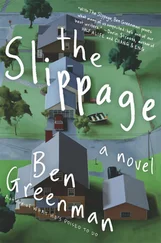HER HAND
(Atlanta, 2015)

THE WOMAN INSPECTS HER HAND. SHE HOLDS IT AWAY FROM her face and looks at it as if it does not quite belong to her, as if its history is something she has read. Thirty-two years before, the hand had gone into her mouth regularly. Sixteen years before, it had unbuckled the belt of a young man who was watching television nervously in the basement of her parents’ home. Eight years before, it had enveloped the tiny hand of her son as he put his lips around her nipple for the first time. Four years before, it had opened up the mailbox at her home, and everything had changed. The hand had survived the mailbox and the postcard it found there, the painful moments clutched in the other hand that followed closely behind, the jeweler’s efforts to cut the ring off. It had been in flour and in water and in leather and in blood, in duress and in ecstasy. It had been in the garbage looking for a credit card that her son had accidentally thrown out. It had been between her own legs as a form of forgetting. Now things are back to normal, give or take. She withdraws the pile of mail, carries it to the kitchen table, brushes the cat with her other hand, sits down. She is looking for a letter from her son. It isn’t the first thing off the pile, which is a flyer for singles cruises, or the second, which is a political circular. Third off the pile is a catalog for home furnishings; she considers going right past it, but she is charged with maintaining the household, and that is what you do when you maintain a household: you visualize possible improvements, rehearse the process of each item entering your house, try to imagine how it will affect the space. She’s regretful by page three: there is an heirloom cherry sleigh bed that looks as though it belongs exclusively to winter. She feels certain she would wake one morning to find a reindeer curled on the floor beside her. There is a flat black dining table with green stone insets; it is majestic but would be too much at half the cost. On page nine she finds something she likes, despite its name: a “moon-shade wall/floor lamp,” available in black or white. She rehearses the process of the lamp entering her house, tries to visualize it existing among the other elements. There is a word for this kind of exercise, the forward-cast of thought, but she can’t remember it. She lifts her hand from the catalog and places it on her forehead. Prolepsis : that is the word. How would a moon-shade wall/floor lamp change the room? The couch would exhibit no reaction. The cat might turn away in chilly indifference. Her son would likely object; horrendous is his favorite word these days, and he finds plenty of opportunities to use it. Sometimes, when he calls home from camp, she tries to use the word back at him, to see if she can get him laughing at himself. But he is a great stone face on the telephone. His tone is flat and black. Her son has not always been this way. During the first four years of his life, he was a sweet boy, generous with his affection. She liked to watch him with his father, playing games of their own invention; she remembered telling people that it was nice to see a good
father at work, and she remembered continuing to tell them that even after the good father declared that he was stepping down from the position. When her husband wasn’t playing with his son, she remembered, he was usually complaining: about how life hadn’t taken him far enough, about the shoddy work of others in his field. Once he wondered out loud if he would still be married in two years. Then, finally, engorged with his own doubt, he had retreated to a hotel in another city and announced that he was reconsidering the marriage. She was serious with him on the telephone, but as soon as she hung up she found herself laughing. She knew he had already decided as much as he was capable of deciding. Still, when the postcard came, she trembled, and when she finally worked up the courage to read it, she held it at arm’s length as if to protect herself from the poison of the thing. After a few days, she told her son that his father was not coming home, at least not right away. She misrepresented his absence as a kind of vacation. When her husband did show up, it was only for a week, after which he moved out. He did several terrible things to her, mostly sins of omission, though his dedication as a father never waned, which filled her with a mix of gratitude and killing rage. She flips through the mail more rapidly. Bill, bill, bill. No letter from her son. Catalog, bill, magazine. Had the postal service slowed down? Magazine, political advertisement, bill. The letter has to be there, but it isn’t. Her hand pushes away the mail; she goes to the couch, lies down, switches off the small red lamp on the side table, and forgets. She gets up, makes herself a snack, and goes back to the mail with renewed resolve. She shakes out every magazine in search of the letter and finds nothing. Finally it falls out of a lingerie catalog. But it isn’t a letter. It’s a postcard. She kneels, trembling, and inspects it. The handwriting is like her husband’s, but it’s her son’s. It has to be, and so it is. She picks up the postcard and reads it. Her son is writing about a new friend he has found, and how thrilled he is to be at camp, and how he wants to visit the friend over the winter, and how he is sorry that he acted so churlishly the first few weeks of camp. Churlishly? she thinks. She stares at the back of the postcard and tries to visualize her son writing the word. Then her hand sets the postcard down on the flat white surface of the kitchen table, locates a letter-opener, and starts to slit the bills open, one by one.
P.S. Insights, Interviews & More…
About the author
Meet Ben Greenman
WHEN I WAS IN COLLEGE, I had a habit of walking out of parties minutes after walking into them. The reason was simple: I didn’t like the sadness. I’d come into the room, and it was like I was walking into a sliding glass door of shame, embarrassment, and self-hatred—and not just my own. I’m not saying people didn’t have fun at parties. People had fun. But the fun was created, to some degree, by the sadness. It was the negative space carved out of the unfun. I didn’t like it, and when it started creeping up my spine, I left. Later on I learned some strategies for blocking out the sadness I was absorbing from the room, most of which involved poor eye contact and a steady stream of jokes. We do what we can with the tools we have.
“It was like I was walking into a sliding glass door of shame, embarrassment, and self-hatred—and not just my own. ”
After college, I followed the vertices of a triangle: I went back to Miami, where I had grown up, to work as a newspaper reporter; went back to Chicago, where I was born, to attend graduate school; then went to New York, where I became a magazine editor and started to publish books of fiction. Recently, while I was on tour for my last book, Please Step Back , I found myself once again in O’Hare Airport in Chicago, where I sat and watched the people pass by, their brows furrowed with one worry or another: maybe the mortgage was late or the insurance on the second car was too expensive or the husband was putting on weight in a way that seemed to indicate depression or the stepson was developing violent tendencies or the boss wasn’t showing enough respect or the lover wasn’t loving back the way she used to or the mother needed surgery. I had forgotten what I had known in college, but now I remembered it suddenly. Every expression, every gesture, seemed to broadcast sadness. I put my earphones in to block it all out and went to get something to eat.
Читать дальше













